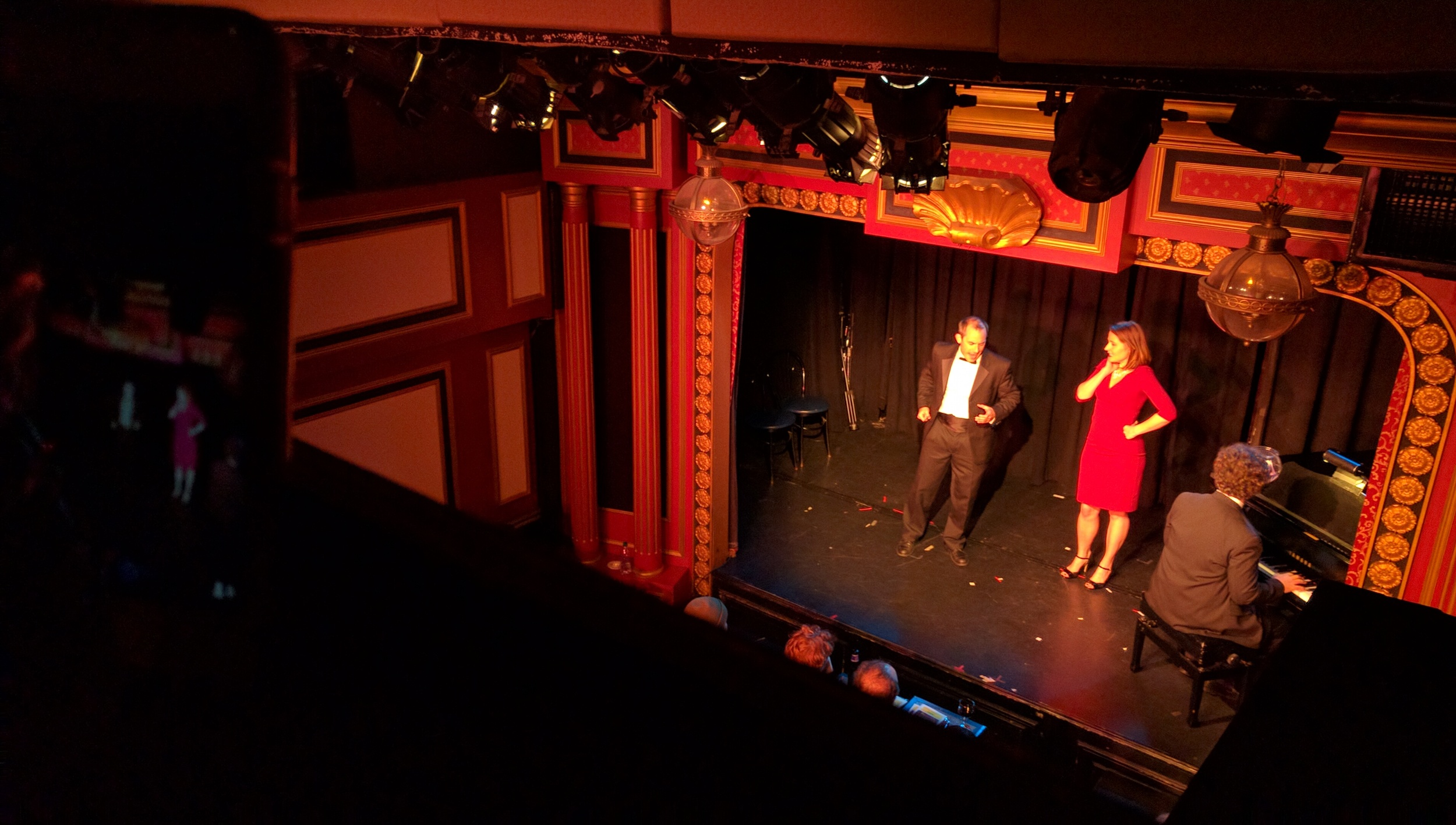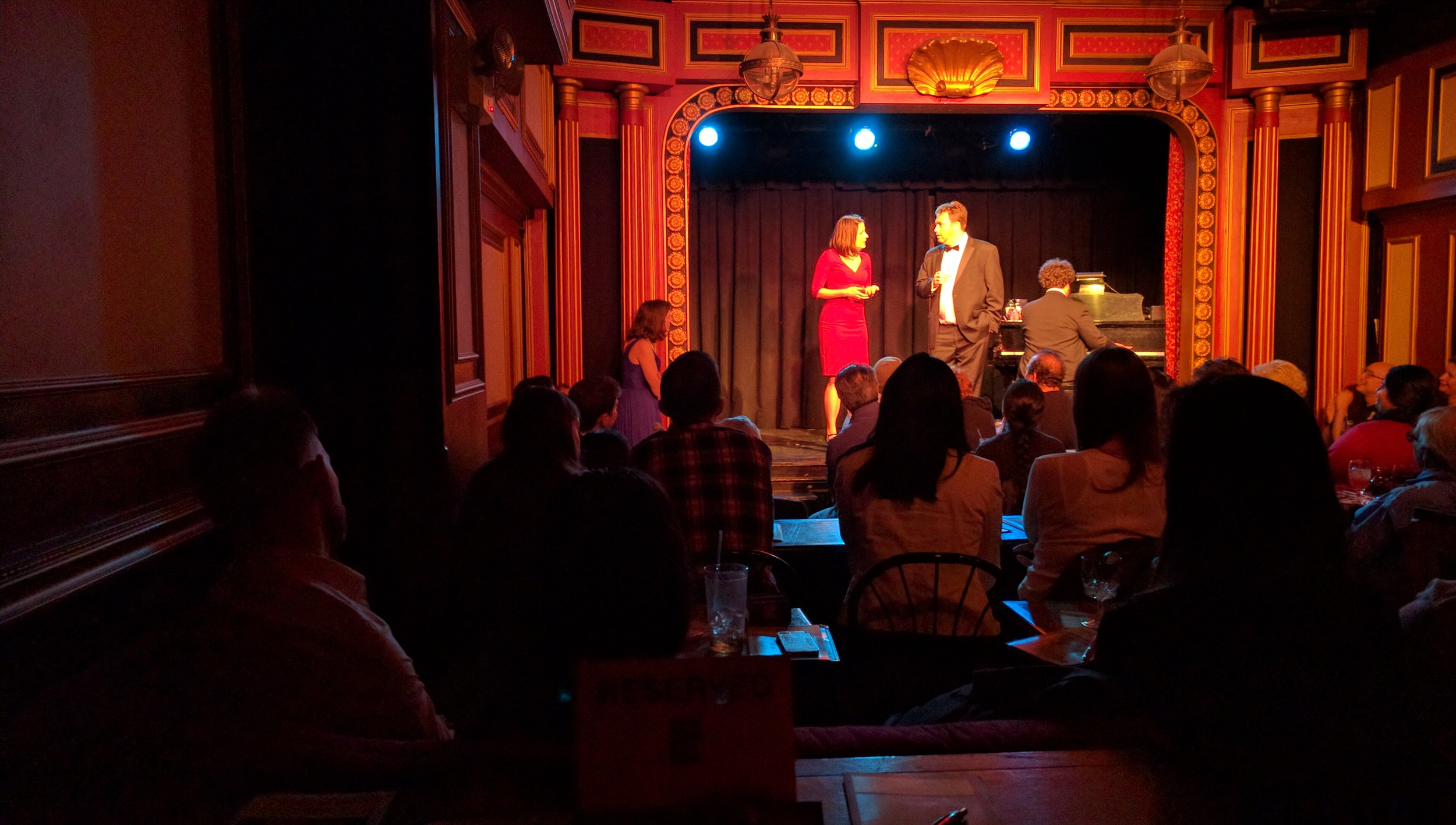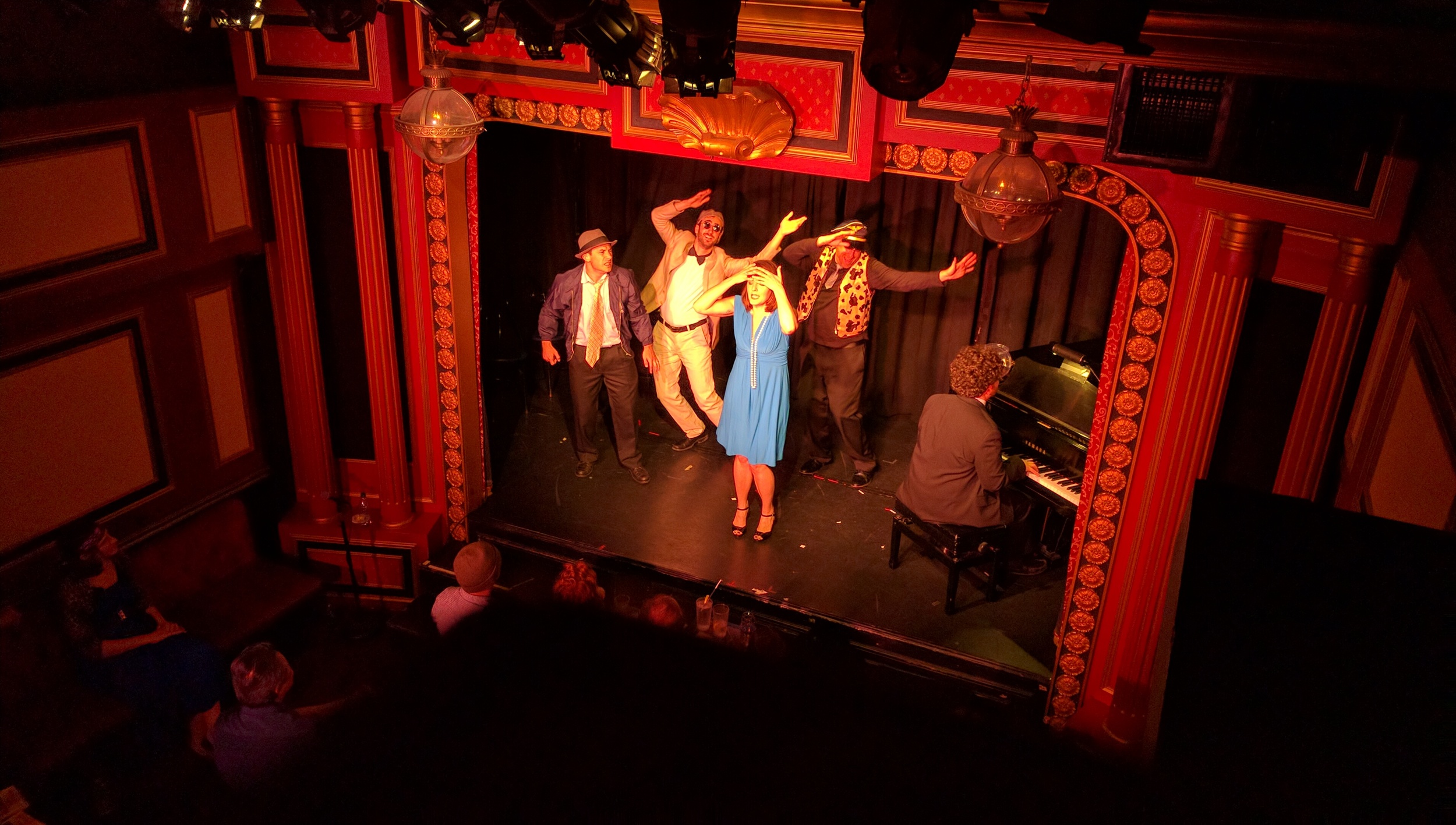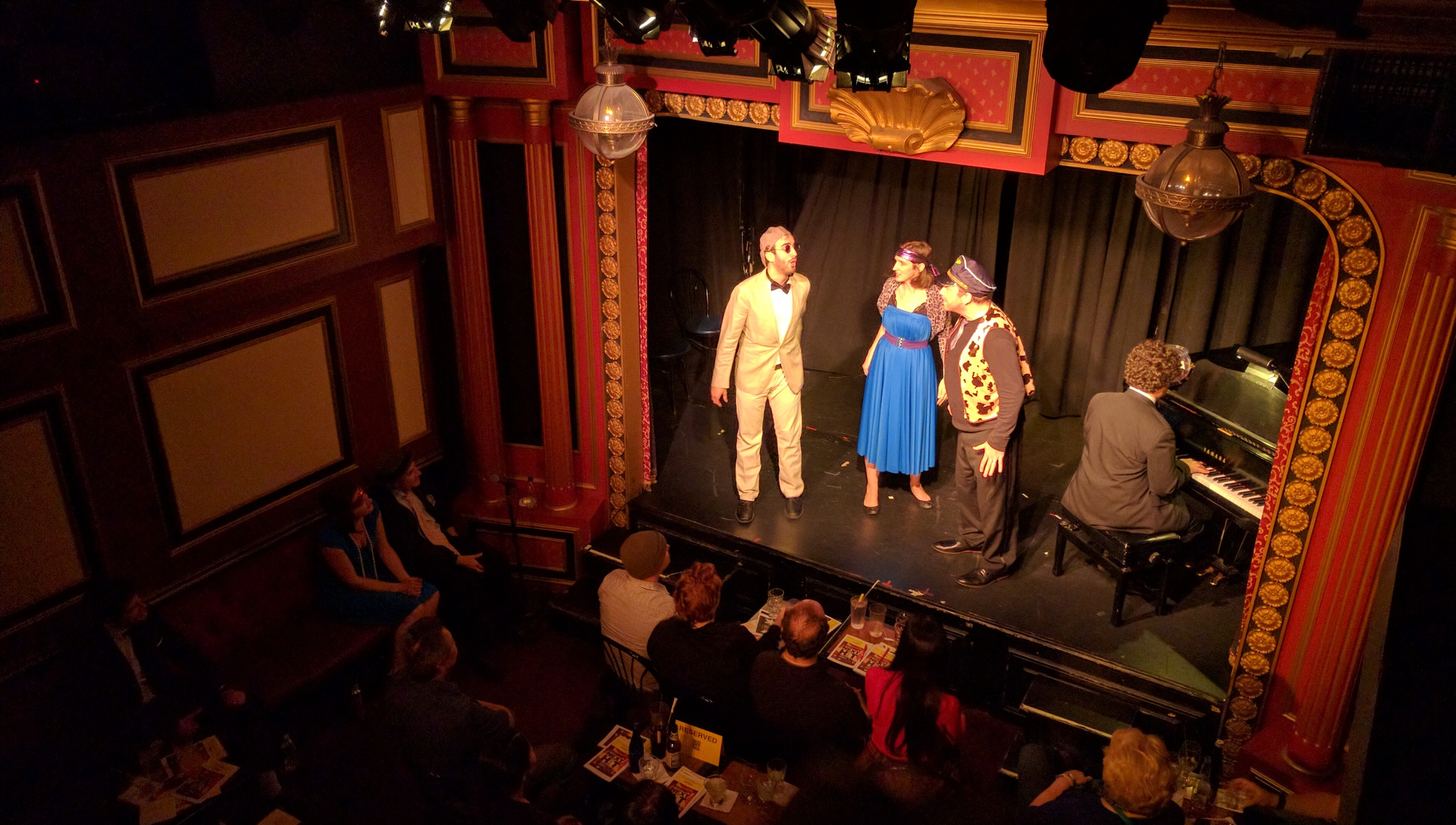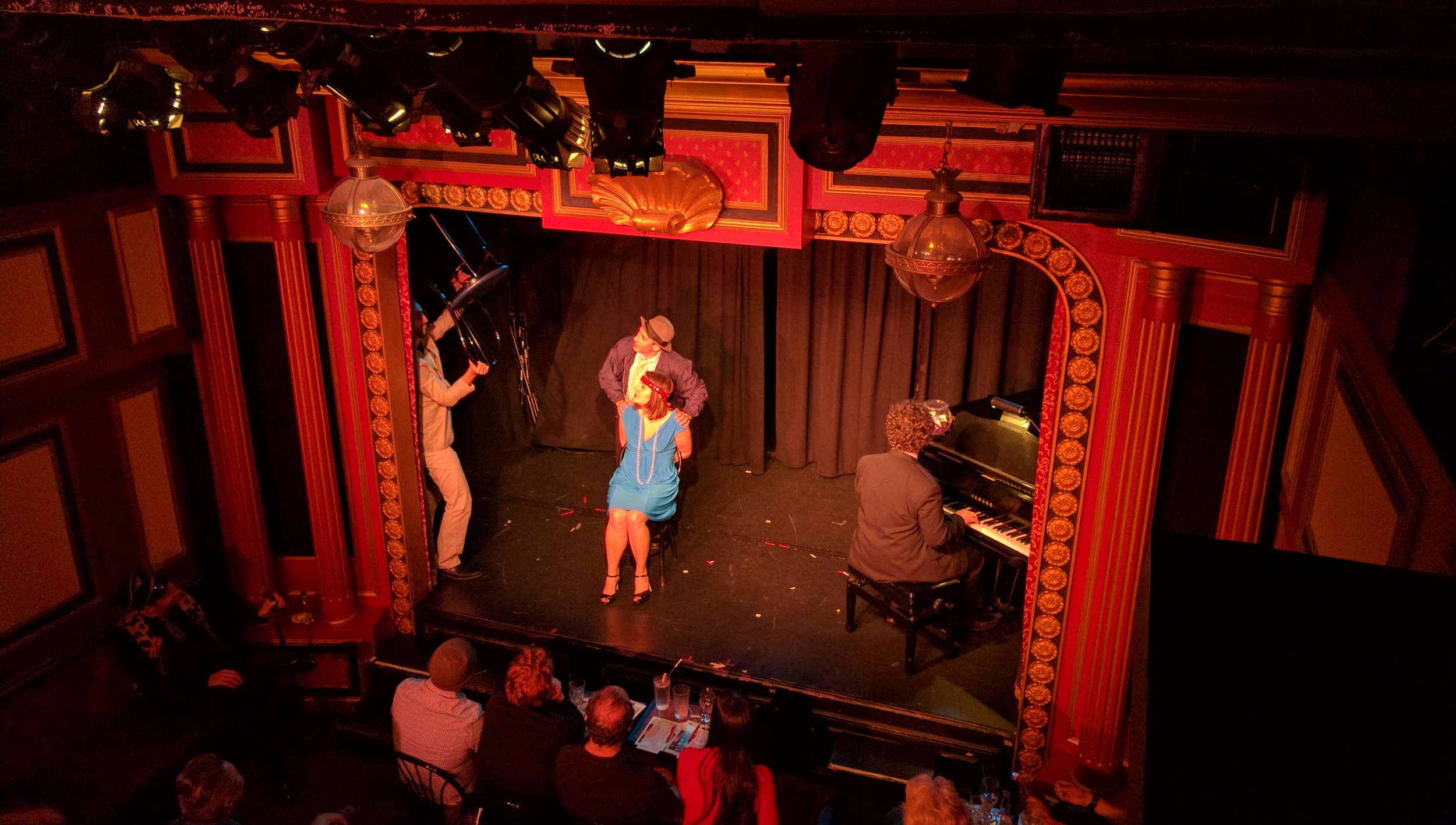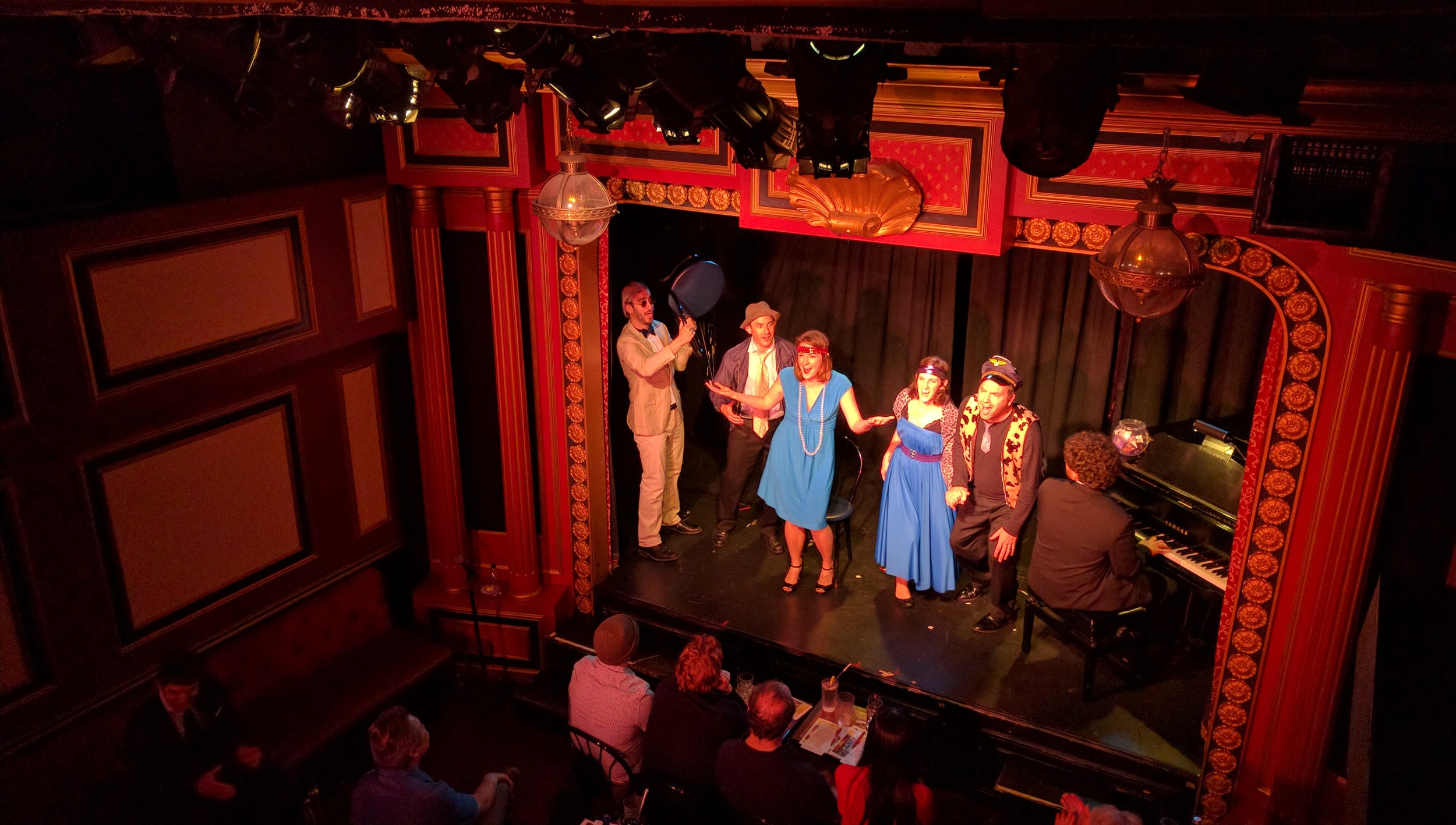[Editor's Note: Once a month we hear from one of Broadway's Next's Producers to give a peak into the process of creating, performing, and maintaining our show. This month it's with actor and producer Ralph Buckley.]
What a great night for BNHM! It was so gratifying to have BNHM back in our NYC home, The Triad.
2 cast members made their NYC BNHM debuts: Daniel Tepper and host Marc T. Engberg.
Also we welcomed special guest, David Jacobson from TrivWorks, who conducted a mini Tony Awards-themed trivia contest at intermission.
Co-winners Sarah and Rachel answered the questions:
What musical did the character Sky Masterson appear in? (Guys & Dolls)
Which 80's sitcom character is also a character in Avenue Q? (Gary Coleman)
What is the longest running show in Broadway history? (Phantom of the Opera)
If you knew the answers to any of these question, you might want attend the special Trivworks/BNHM hosted NYC’S ULTIMATE BROADWAY TRIVIA NIGHT/AWARDS SHOW on Tuesday, June 7. The grand prize is 2 tickets to the dress rehearsal of the actual Tony Awards!
Favorite moments from our BNHM opening night performance were:
Host Marc's hilarious riff on the unseen presentation of the BNHM "technical awards" held in Ballroom B of the Holiday Express Inn in White Plains.
Stefan's versatility in playing a giraffe, a dedicated Prohibition era cop and the moon.
Annie and Daniel's duet in which they recreated a competitive 1950's sister brother Pillsbury Bake-Off team who dreamed of escaping their hometown of "Stevesville" and making it to "Paulsburg".
Daniel's hysterical portrayal Corey Hart of Sunglasses At Night fame.
Annie shining as the official neck tattoo artist of the "Gin Whiskey Bathtub Ladies' Club."
Rob's virtuosity in playing the bagpipes, a corrupt alcoholic Scottish-accented police chief and a romantic boyfriend who suddenly becomes a werewolf.
The Phony Award winning song, "Snakes On A Dame" from the musical, "Speaks Not So Easy", written by Gabe Finkelstein, choreographed by Tasha and wonderfully performed by heroine Rachel who was torn between love for her husband and how she feels when she gets hopped up on bathing gin.
And finally, Eric March's underrated brilliance in composing every musical moment in the show.
I look forward to 4 more weeks of hilarity and song. Well done all BNHMers!



